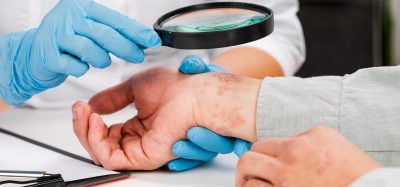Women in STEM with Kristina Torfgard
Posted: 5 September 2024 | Kristina Torfgard (IRLAB Therapeutics) | No comments yet
Introducing Kristina Torfgard! Holding a PhD in Clinical Pharmacology, she has over 30 years’ experience in drug development and is currently CEO of IRLAB Therapeutics.


Can you tell us about your journey in the field of STEM and the challenges you encountered along the way?
I am a pharmacist by training and continued with a PhD in Clinical Pharmacology. However, my goal was all the time to work with drug development in the pharma industry, so I moved on and started that journey in 1992 when I took on a role as Clinical Research Manager at AstraHässle, a mid-size Swedish pharma company. Within the clinical organisation I learnt a lot about drug development and was promoted to Project Manager in a new therapeutic area for the company – diabetes and insulin resistance. I really enjoyed not only the scientific aspects but also the strategic and tactical elements. It was quite challenging with the AstraZeneca (AZ) merger, but after a number of interviews and tests I was happy to be appointed as Project Manager for the same area as I had been working in previously.
Later, heading up early gastrointestinal projects as Global Product Director, it was exciting to reach Proof of Concept, however I was seen not experienced enough to bring this project forward in development. This was very challenging for me and at that moment I decided to get experience from later stage products and therefore took on the role as Global Product Director for late-stage marketed cardiovascular products. It was interesting and encouraging to have global responsibilities of AstraZeneca’s marketed cardiovascular products, some of them still mega brands. This role gave me a good understanding of how important IP/patent and global marketing are for the brand but also the importance of emerging markets and co-development and out-licensing to other pharma companies. I experienced challenges in cultural differences working with US, UK, Japan, and China. Later, I took a university course in inter-cultural differences, which I of course should have done at an earlier stage.
I then decided to leave the “big and safe” big pharma world to start my own consultancy business. I worked for some smaller biopharma/biotech companies in the small biopharma world where there are only a few employees and therefore individuals have broader roles. I was part of building up this small biopharma company and learn a lot about rare diseases, regulatory interactions and challenges related to that, challenges related to out licensing drug candidates and having new people joining the company every month as we were growing so fast. In addition, we were a US and Swedish group working together with all that comes with that in form of cultural challenges.
With all this experience, I was very excited to take on the CEO role for Alzinova, a company developing a vaccine and other treatments against Alzheimer’s disease. I have built up this biopharma company from being a university science focused company to a biopharma company with all skills and focused on drug development and partnering. Financing and recruitment of the best people has been more challenging work than I had expected.
Now moving on as CEO of IRLAB, a company developing treatment for Parkinson’s disease, I am looking forward to leading this exciting company with its unique technology and impressive pipeline. With more than 30 years in drug development, experience from both small biopharma and big pharma, different therapeutic areas and collaborating with people from all different regions and nationalities, I am ready and prepared to take on challenges.
Although I have never experienced challenges because of being a woman, I have not experienced advantages either.
Could you share an example of a specific project or research that you have worked on and the impact it has had in your field?
One specific project which is close to me is the development of an electronic tool called “Patient- and Observer- reported outcomes”, which is measures specifically for paediatric rare liver diseases. In close collaboration with the regulatory authorities, this specific tool served the basis of the registration of a new drug to treat two different rare liver diseases: progressive familial intrahepatic cholestasis (PFIC) and Alagille syndrome. I feel very proud of having led this drug project that now helps families with young children to get an effective treatment for liver diseases that previously were not possible to treat other than through surgery, which was often not successful.
What potential future applications or implications do you foresee based on your work?
In addition to the previously mentioned new treatment for children with rare liver diseases, I foresee two other important fields and breakthroughs.
I got the opportunity to lead a biopharma company at Alzinova that are developing a vaccine candidate against Alzheimer’s disease. I believe that this unique and “best in class” product will make a difference for all people suffering from Alzheimer’s and their families.
Now, as CEO of IRLAB Therapeutics, I look forward to continuing an exciting journey, building further on the great work already done in discovering and developing new drug candidates that can create significant value for those affected by Parkinson’s and other progressive, incurable brain diseases, and for their loved ones.
As a woman in STEM, what unique perspectives or strengths do you believe you bring to your work?
My strengths are a combination of science and management with focus on leadership, trust and respect in working with people and teams to reach success. I am inclusive and supportive in working with teams. It is important that people working for me are seen, understand their role and feel trusted.
What advice would you give to young women who are considering a career in STEM but may be hesitant due to societal stereotypes or perceived challenges?
I think women may be hesitant in taking on leadership positions or leadership roles due to workload or that they might not have good role models. I would encourage them to pursue their passion and be themselves, see the opportunities and say YES! You can do it!
How do you see the representation of women in STEM changing over the years, and what further progress do you believe is needed?
I think it has gradually changed with an increasing number of women in STEM. All types of activities encouraging women in STEM is important, like this article. Together we can help and support women to further increase this number.
In your opinion, what can organisations and institutions do to create a more inclusive and supportive environment for women pursuing STEM careers?
It is important to build diverse teams in all types of organisations. I would also encourage more focus on women in leadership positions, find role models and set up mentee-mentor programs, therefore investing in people’s growth.
Looking ahead, what exciting developments or advancements do you foresee in your field of STEM, and how do you envision your own research contributing to those future innovations?
I am very excited about the great opportunities we see in new treatments for neurodegenerative diseases such as Alzheimer’s disease and Parkinson’s disease – both being devastating progressive diseases affecting millions of people and their families.
I have big hopes and foresee that we will get more effective treatments with better safety profiles and “best in class” treatments for Alzheimer’s and “first in class” for Parkinson’s. As former CEO of Alzinova, I am looking forward to seeing partnering and initiation of Phase II for the vaccine candidate ALZ-101.
Looking ahead, I am excited now to lead IRLAB Therapeutics, which has a unique technology and portfolio of transformative treatments for all stages of Parkinson’s disease. Already, three candidates are in clinical development and the lead candidate is ready to enter Phase III.
About the author
Kristina Torfgard, Chief Executive Officer of IRLAB Therapeutics


Prior to IRLAB Therapeutics she held senior positions at AstraZeneca in both early and late-stage R&D and was globally responsible for marketed products. At the biopharmaceutical company Albireo AB/Pharma Inc, she worked as VP Clinical & Regulatory Affairs and VP Global Project Head. Most recently, she was CEO of Alzinova AB where she built up the company to bring drug candidates for Alzheimer’s disease to the market through partnering.
Kristina is a pharmacist and holds a PhD in Medical Science from Linköping University. She is a Board director of GU Ventures, the holding company at the University of Gothenburg.
See more information about Kristina here: https://irlab.se/about-irlab/management/
Related topics
Drug Development, Neurosciences, Pharmacology
Related organisations
IRLAB Therapeutics
Related people
Kristina Torfgard (IRLAB Therapeutics)








